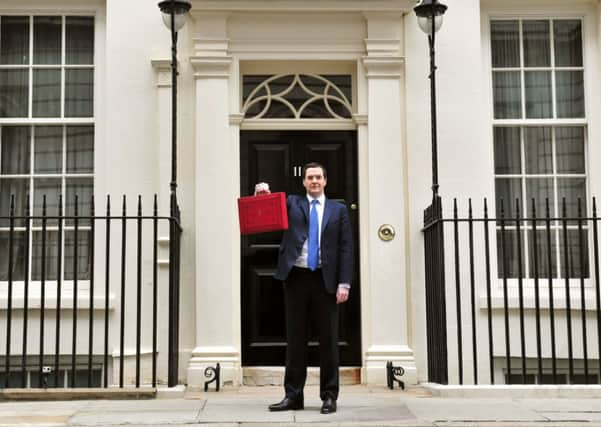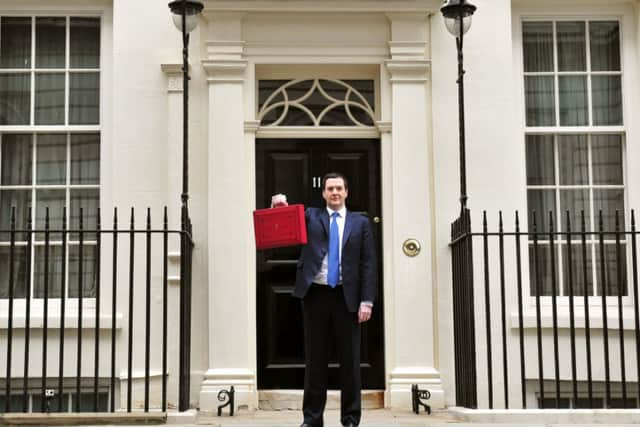Huge pensions shake-up leaves savers delighted


The rules around pension savings are to be dramatically relaxed, so people will find it easier to cash in pension pots and no longer feel forced to use their savings to buy an annuity.
The shake-up immediately triggered a huge fall in the share prices of leading pensions providers, with Legal & General down 13 per cent and Aviva down eight per cent. Aviva’s life and pensions business, which is headquartered in York, was only recently hit by a £100m savings drive which led to the loss of 300 jobs.
Advertisement
Hide AdAdvertisement
Hide AdBut a defiant George Osborne insisted the “patronising” rules around pensions which effectively force people to take out annuities must be reformed.


“Most people still have little option but to take out an annuity, even though annuity rates have fallen by half over the last 15 years,” the Chancellor said.
“The tax rules around these pensions are a manifestation of a patronising view that pensioners can’t be trusted with their own pension pots.
“I reject that. People who have worked hard and saved hard all their lives and done the right thing should be trusted with their own finances.”
Advertisement
Hide AdAdvertisement
Hide AdUnless someone has a “gold plated” deal such as a final salary pension, they often use the money they have built up in their pension pot to buy an annuity when they retire, which gives them the security of a fixed yearly income for the rest of their lives.
But controversy has been growing over annuities in recent years, amid plunging rates and fears many people are unaware they can often get a better deal by shopping around.
Mr Osborne’s central change will ease the burden on the 13 million people with ‘defined contribution’ pension schemes by removing the cap on the amount they can take from their pension pot.
Anyone who takes more than a quarter of their pension tax free will no longer face what the Treasury termed a “punitive” 55 per cent tax rate. They will instead be taxed at the normal marginal rates.
Advertisement
Hide AdAdvertisement
Hide AdThe Treasury fully expects the radical changes to encourage a large number of pensioners to withdraw their savings.
But Chris Sanger, head of tax for Ernst & Young, said Mr Osborne’s “giveaway” could encourage more pension saving, as people would know they could later use the money as they saw fit.
Pensioners’ campaigners also welcomed the announcements.
Age UK said in a statement that the “rigid” pensions system has become increasingly “out of step with the reality of contemporary working lives”.
Shadow Chancellor Ed Balls said reforming annuities “is a good thing”, but warned it was a “big step” and that the implications needed to be worked out.
Advertisement
Hide AdAdvertisement
Hide AdThe reform came as part of a massive package of measures designed to help savers following years of record-low interest rates.
Savers will be able to invest up to £15,000 a year in a new ‘super Isa’, formed by the merging of existing cash and stocks-and-shares savings accounts.
Mr Osborne also unveiled a new savings bond for those aged 65 and over. Pensioner savings bonds will launch next January and are expected to pay out interest of 2.8 per cent over one year and four per cent over three years
Mr Osborne also said the 10 per cent starting rate for savings income will be axed altogether to support the lowest earners, while NS&I premium bond limits will also be raised from £30,000 to £40,000 this year and £50,000 next year.